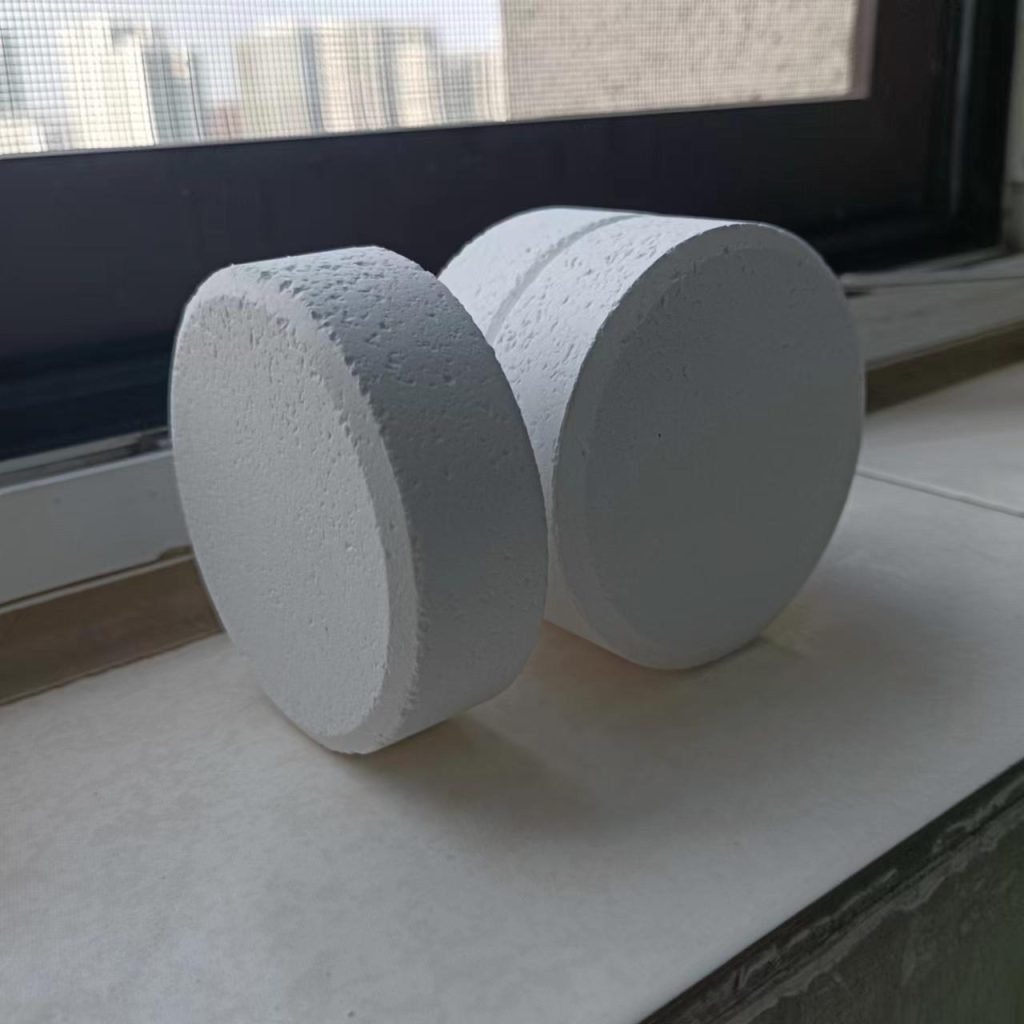As a chlorine tablet supplier, ensuring the safe packaging and storage of chlorine tablets is vital for maintaining product quality, safeguarding user safety, and adhering to industry standards. In this guide, we’ll discuss how to properly store and package these essential products. Whether you’re in the business of supplying or purchasing chlorine tablets, understanding these best practices is critical.

I. Understanding the Importance of Proper Storage
The storage of chlorine tablets plays a critical role in preserving their effectiveness and ensuring their safe use. Chlorine is a highly reactive chemical that can degrade or pose safety risks if not stored correctly. Failing to follow the right procedures can result in reduced effectiveness, chemical instability, and even hazards to those handling the product.
By implementing proper storage techniques, you can ensure that the best chlorine tablet sale is not only based on competitive pricing but also on offering reliable, high-quality products that meet customer expectations.
II. Packaging Standards for Chlorine Tablets
Packaging is the first line of defense for chlorine tablets. As a chlorine tablet supplier, it’s important to focus on the following packaging standards:
1. Moisture-Resistant Materials
Chlorine tablets are highly reactive to moisture, which can lead to premature degradation. Packaging materials should include high-quality plastic or airtight containers that effectively prevent exposure to humidity. These materials ensure the product retains its potency from the point of manufacture to the point of use.
2. Child-Resistant and Tamper-Proof Designs
Safety is a top priority for products like chlorine tablets. Packaging must include child-resistant locks or seals to prevent accidental contact. A tamper-proof design builds consumer trust and ensures the product remains uncompromised until it reaches the user.
3. Labeling and Instructions
Proper labeling is essential for providing clear usage and storage instructions. Labels should include hazard symbols, handling precautions, and specific storage recommendations. This ensures that customers understand how to use the product safely and effectively.
By following these packaging standards, manufacturers can create products that align with the expectations of both safety regulations and customer needs.
III. Optimal Storage Conditions for Chlorine Tablets
1. Store in a Cool, Dry Place
The number one rule for storing chlorine tablets is to keep them in a cool, dry area. Exposure to heat or humidity can accelerate the breakdown of the chlorine, reducing its effectiveness. Ensure that the storage location is well-ventilated to prevent the buildup of chlorine gas.
2. Avoid Direct Sunlight
Prolonged exposure to sunlight can trigger chemical reactions within chlorine tablets, potentially making them unstable. Storing them in shaded or enclosed spaces ensures they remain chemically inert until use.
3. Keep Away from Combustible Materials
Chlorine is a strong oxidizer and can react violently when in contact with flammable substances. It is crucial to store chlorine tablets away from fuel, paper, or other combustible materials to minimize the risk of fires.
4. Use Proper Containers
Always use storage containers specifically designed for chlorine tablets. These containers should be made from non-reactive materials and should seal tightly to prevent moisture ingress and chlorine gas leakage.
IV. Common Mistakes to Avoid
1. Improper Mixing
Never mix chlorine tablets with other chemicals, especially acids or ammonia. This can result in dangerous chemical reactions, producing toxic gases.
2. Storing in Open Spaces
Leaving chlorine tablets in open spaces or unsealed containers exposes them to moisture and contaminants, reducing their efficiency and posing potential health risks.
3. Overstocking
Avoid overstocking chlorine tablets beyond their shelf life. While it may seem cost-effective to buy in bulk, expired tablets lose potency, making them ineffective for water treatment or disinfection.
By avoiding these common mistakes, you can maintain the quality of your products and ensure a safe working environment.
V. How Packaging and Storage Affect Sales
Proper packaging and storage have a direct impact on the success of your best chlorine tablet sale campaigns. Customers prioritize products that offer safety, convenience, and long shelf life. By ensuring the quality of your chlorine tablets through optimal storage and robust packaging, you enhance customer satisfaction and drive repeat business.
Additionally, as a chlorine tablet supplier, demonstrating a commitment to safety and quality can differentiate your brand in a competitive market. Offering products that maintain their efficacy throughout their shelf life ensures customer trust, which is essential for long-term business success.
VI. Conclusion
Chlorine tablets are indispensable for water purification, pool maintenance, and other disinfection needs. However, their effectiveness and safety depend largely on how they are packaged and stored. By following the guidelines discussed in this blog, manufacturers and suppliers can ensure the longevity and reliability of their products.
As a trusted chlorine tablet supplier, you must prioritize moisture-resistant packaging, proper labeling, and optimal storage conditions to deliver the best chlorine tablet sale experience to your customers. By doing so, you will not only meet regulatory standards but also establish a reputation for quality and reliability in the market.


 Instant
Quote
Instant
Quote Email
Us
Email
Us